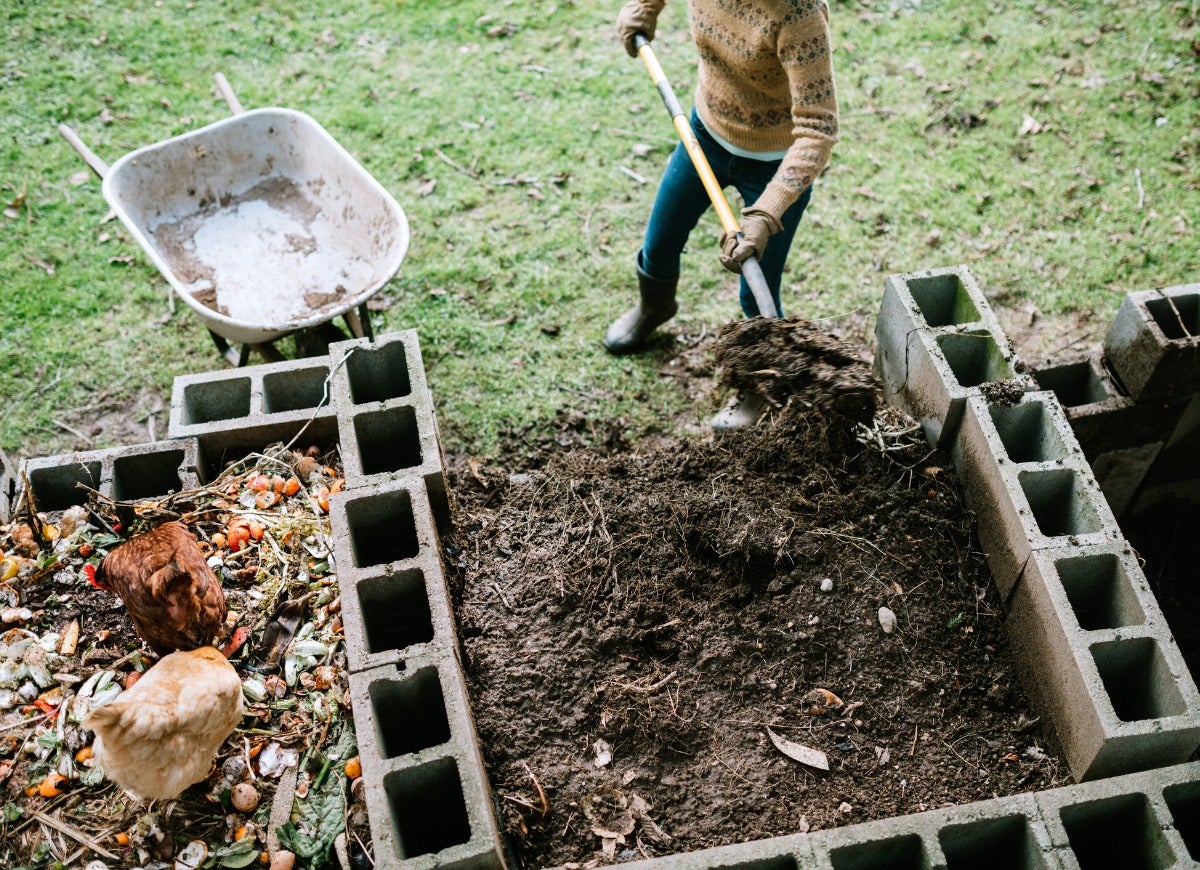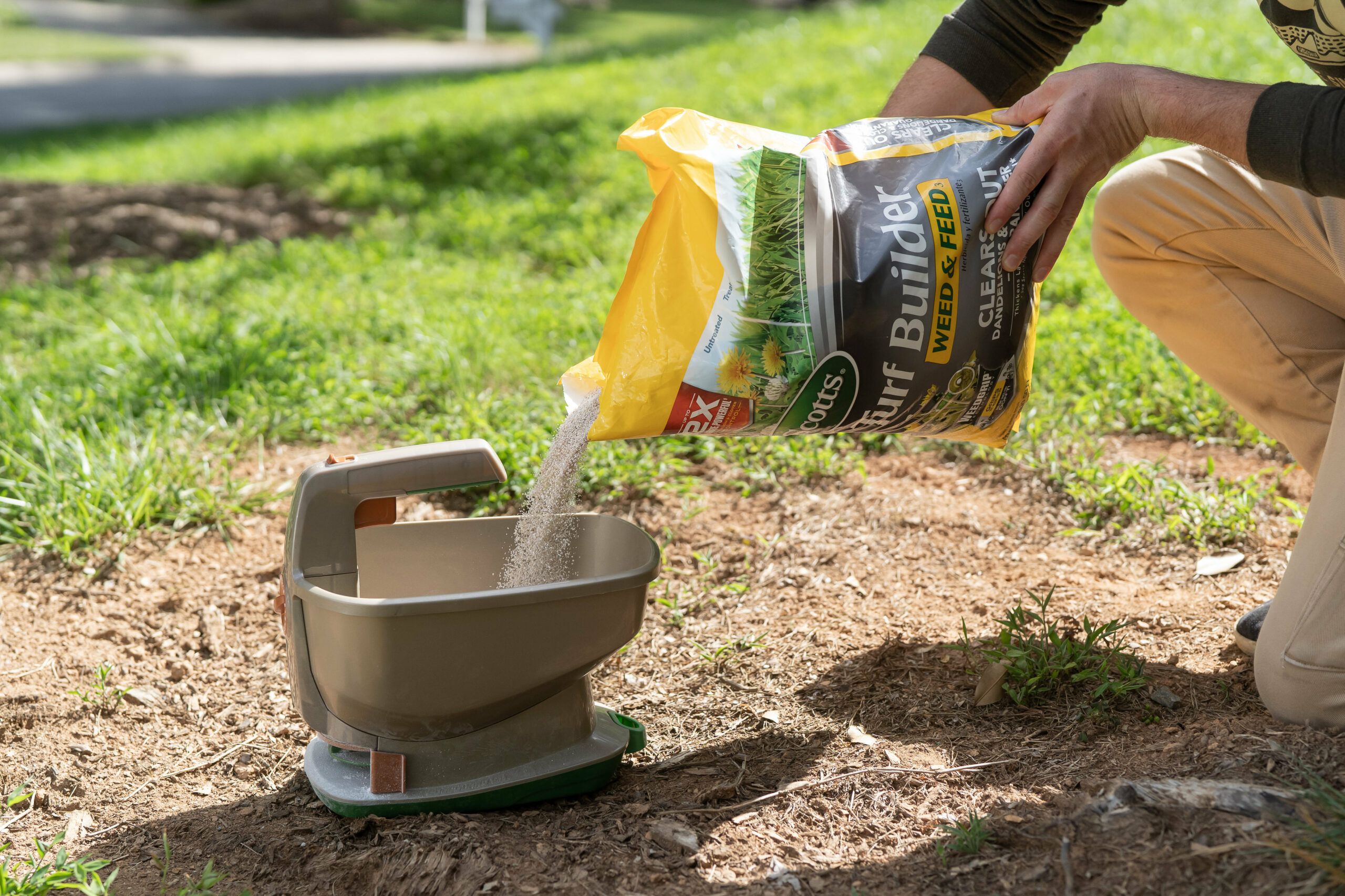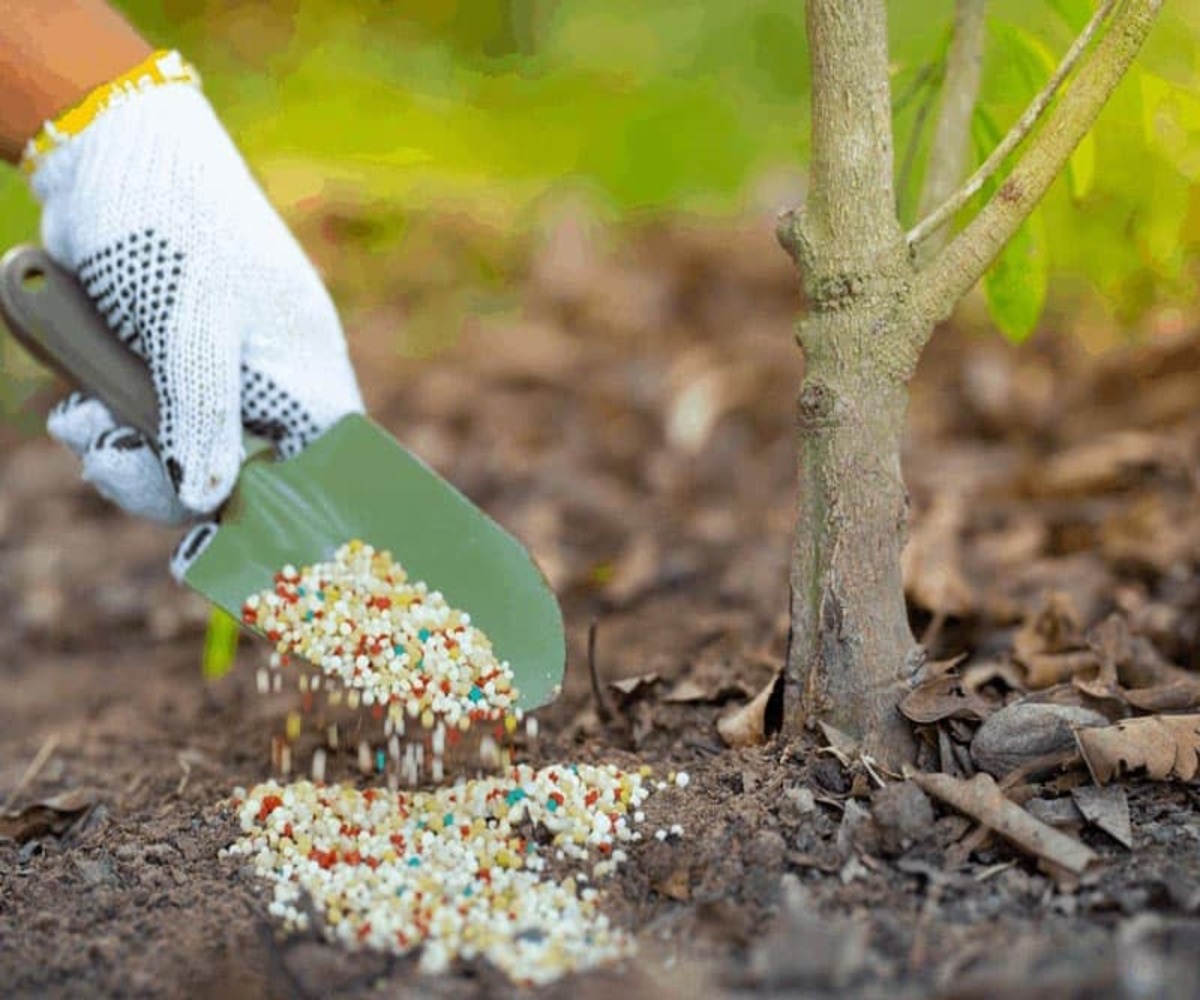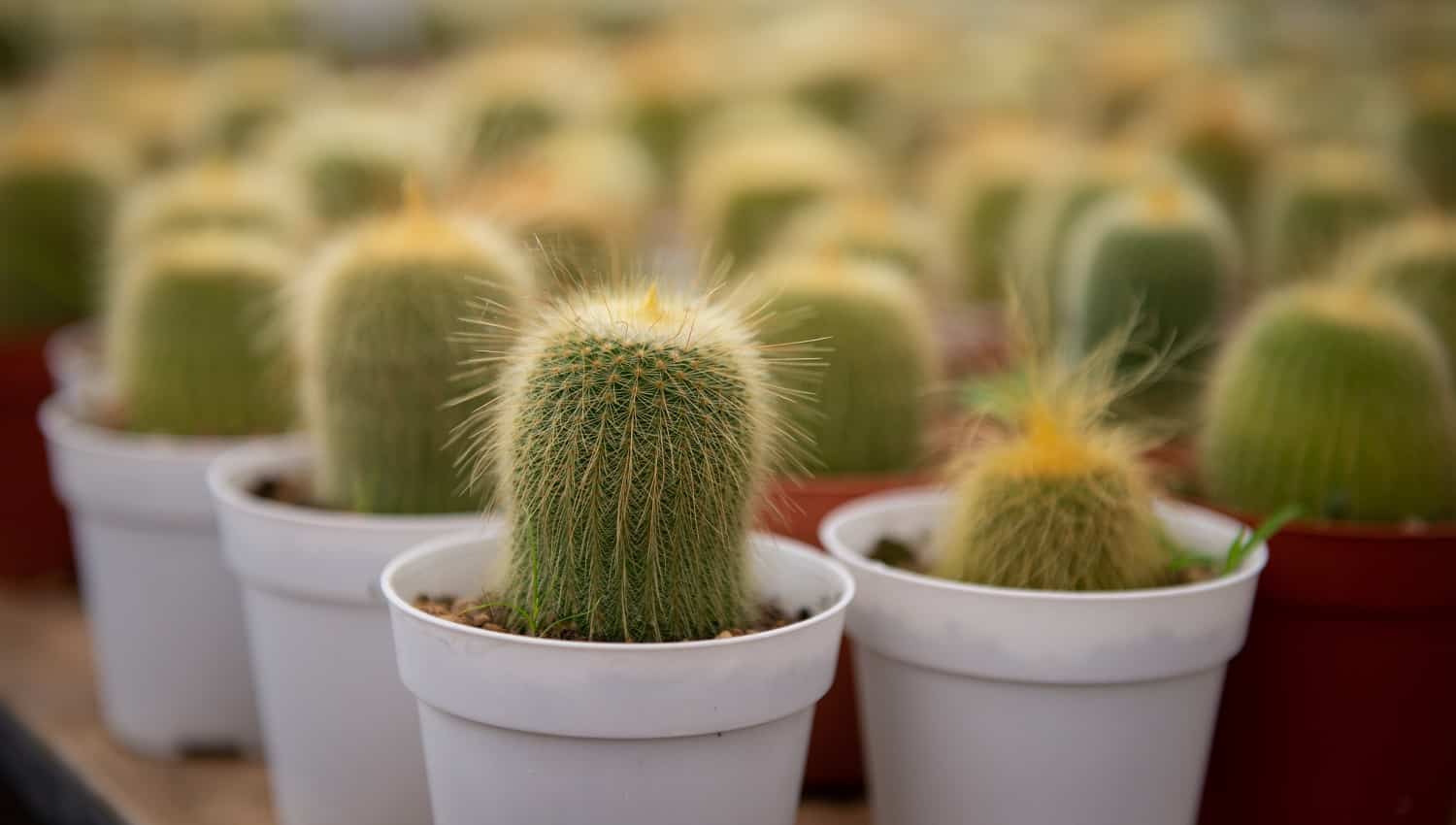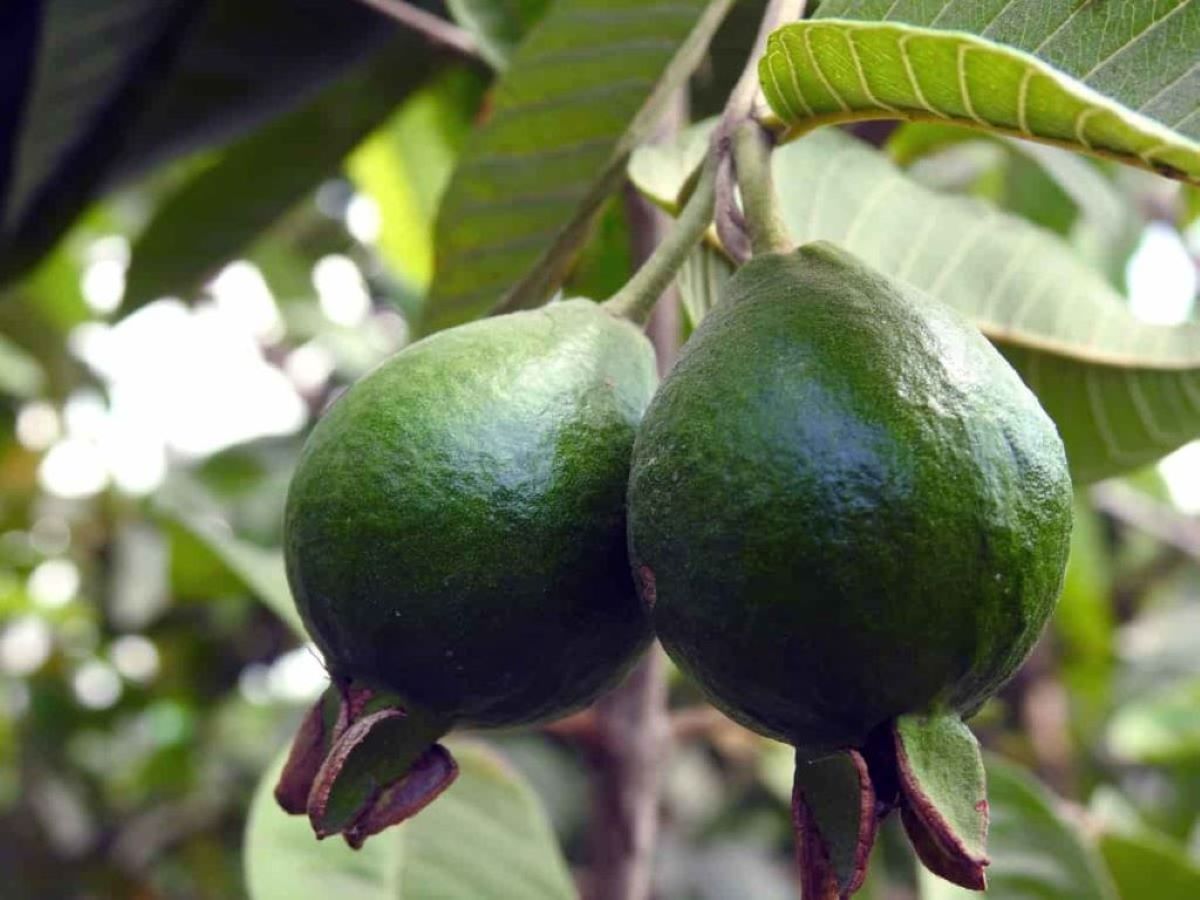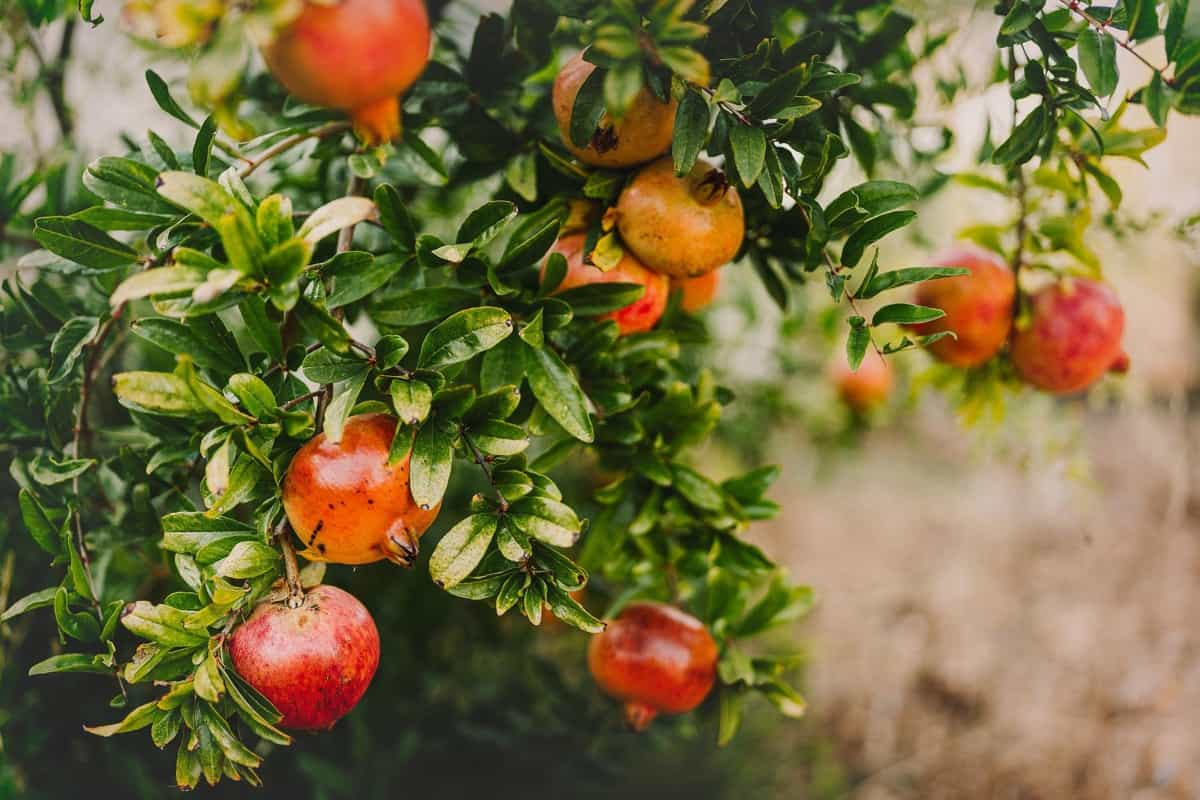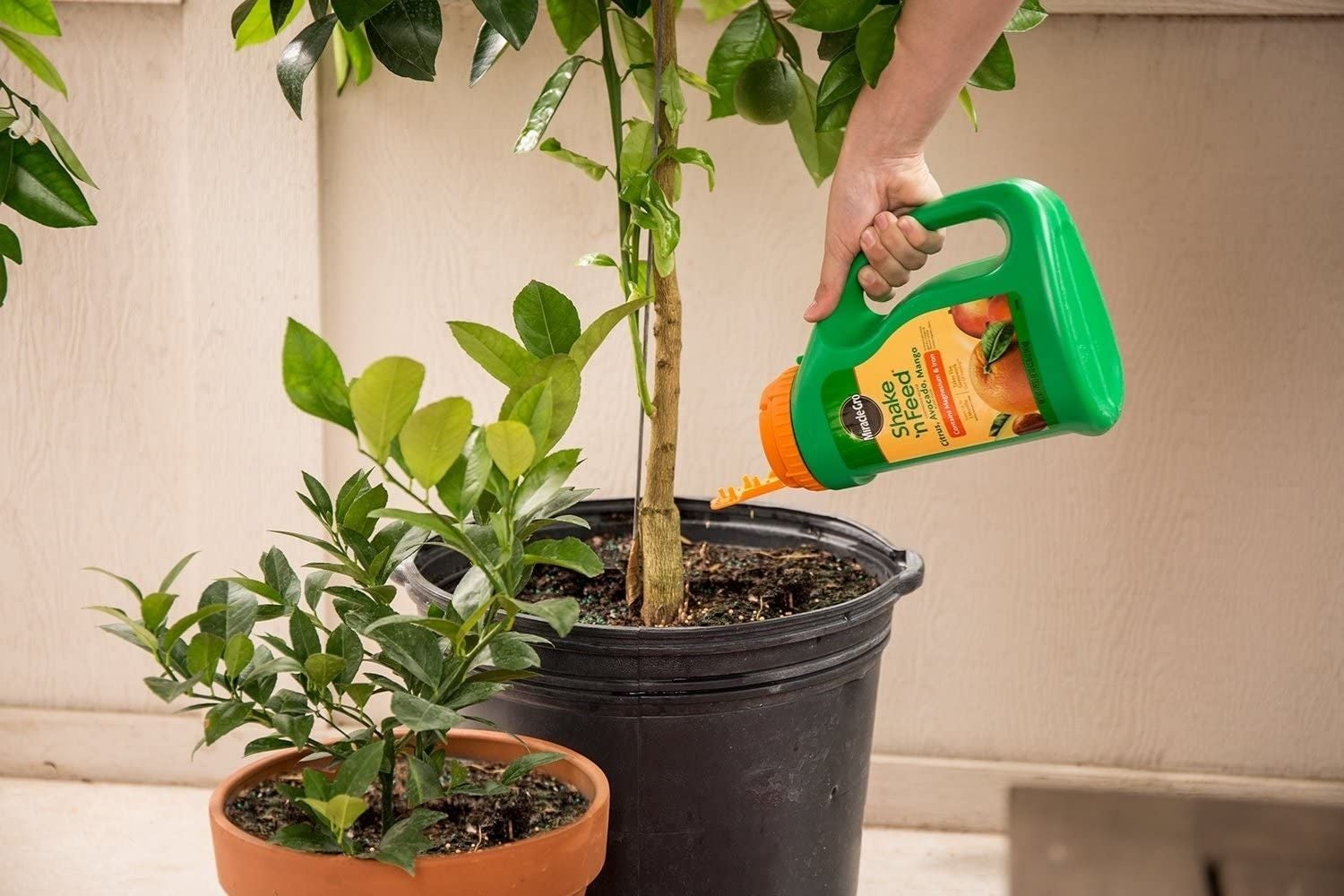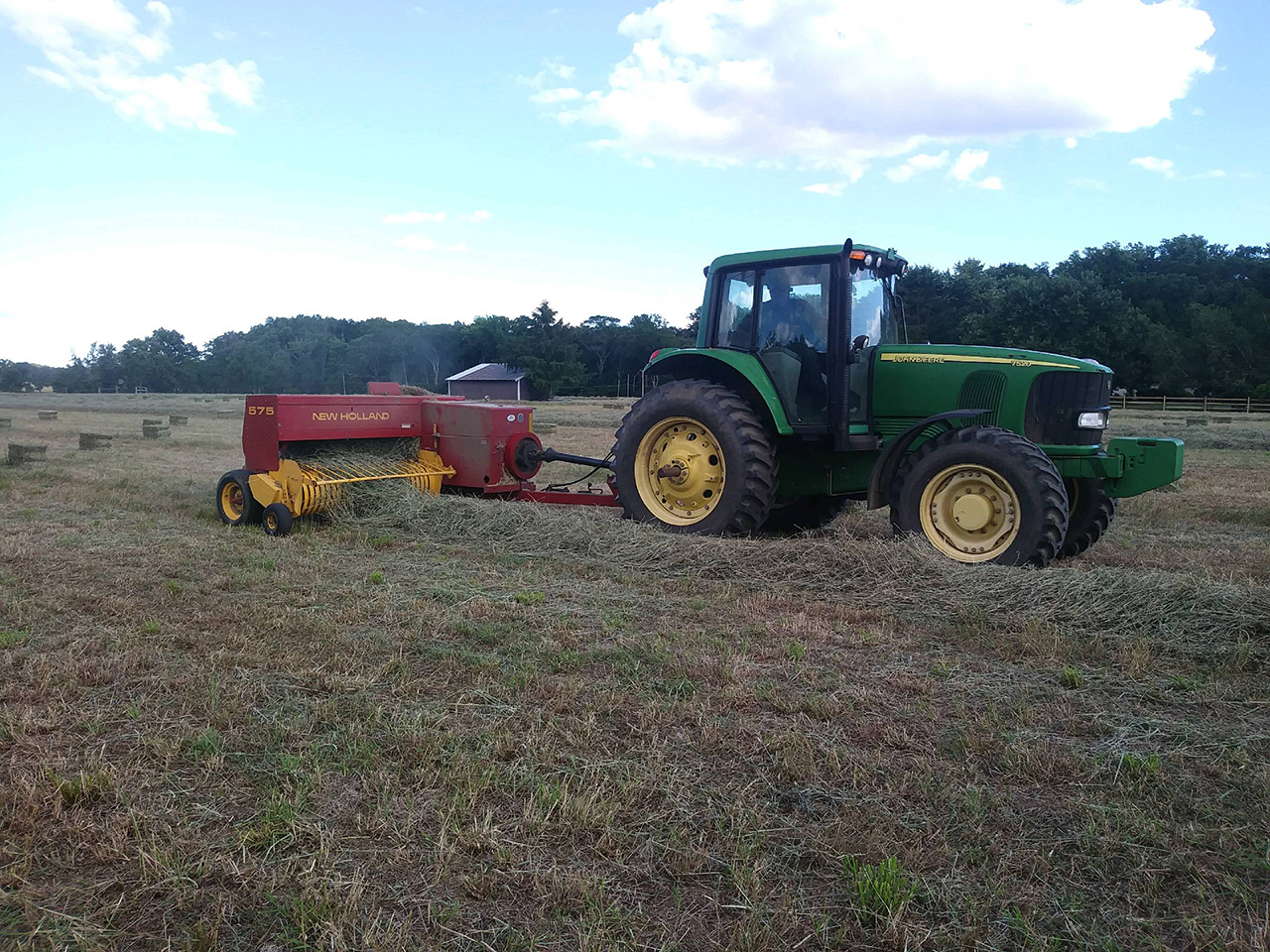Home>Types of Gardening>Edible Gardening>What Is The Best Fertilizer For Vegetables
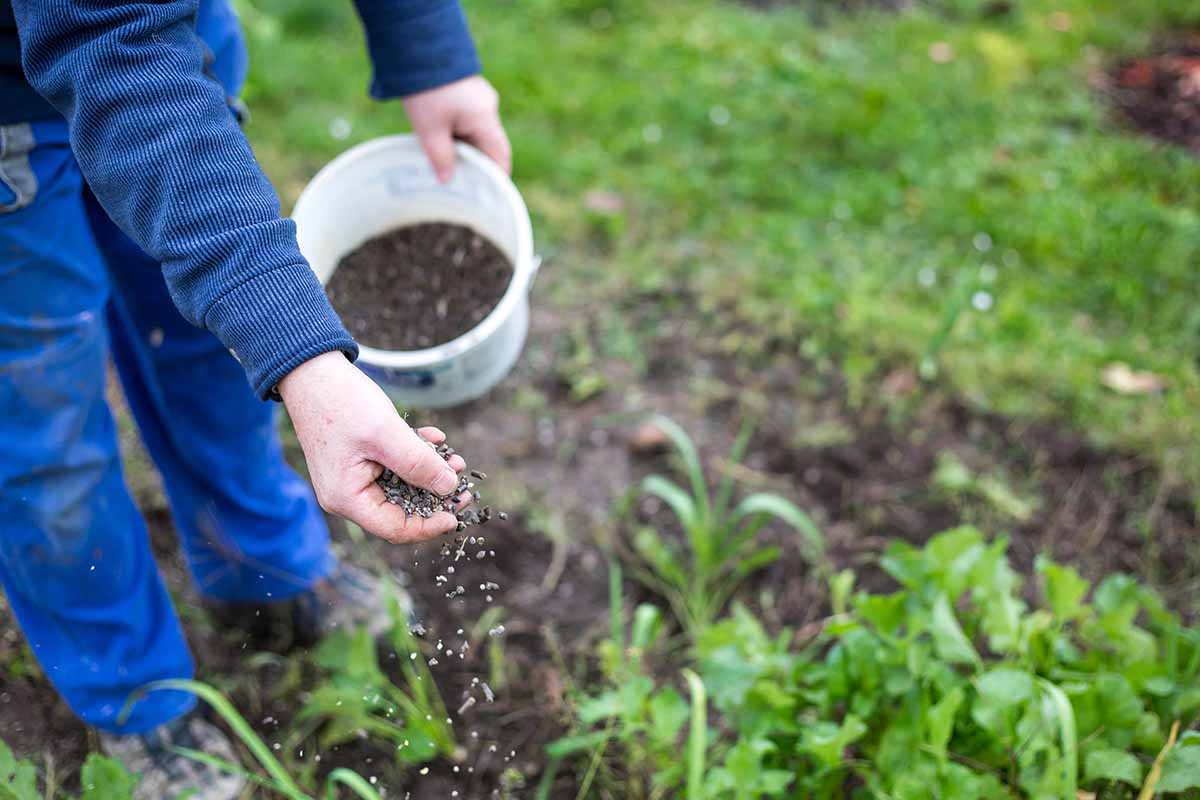

Edible Gardening
What Is The Best Fertilizer For Vegetables
Modified: February 5, 2024
Discover the best fertilizer for vegetables to enhance your edible gardening experience. Maximize your crop yield with the right nutrients for healthy, thriving plants.
(Many of the links in this article redirect to a specific reviewed product. Your purchase of these products through affiliate links helps to generate commission for Chicagolandgardening.com, at no extra cost. Learn more)
Table of Contents
- Introduction
- Importance of Using Fertilizer in Vegetable Gardening
- Factors to Consider When Choosing a Fertilizer for Vegetables
- Organic Fertilizers for Vegetables
- Inorganic Fertilizers for Vegetables
- Best Fertilizer Options for Specific Types of Vegetables
- Tips for Using Fertilizers Effectively in Vegetable Gardening
- Conclusion
Introduction
Welcome to the wonderful world of edible gardening! Growing your own vegetables is a rewarding and sustainable way to enjoy fresh and nutritious produce right in your backyard. One of the key factors in successful vegetable gardening is ensuring that your plants receive the right nutrients to thrive. This is where fertilizers come into play.
Fertilizers provide essential nutrients that may be lacking in your soil, helping your vegetables grow stronger, healthier, and more productive. They help to enrich the soil, promote healthy root development, improve disease resistance, and increase yields. Whether you are a beginner or an experienced gardener, choosing the right fertilizer for your vegetables is crucial to achieving optimal results.
In this article, we will delve into the importance of using fertilizers in vegetable gardening and discuss the factors to consider when selecting the best fertilizer for your plants. We will explore both organic and inorganic fertilizer options, highlighting their benefits and drawbacks. Additionally, we will provide insights on the best fertilizer choices for specific types of vegetables, as each plant has unique nutritional requirements.
Whether you are planning to grow vibrant tomatoes, crisp lettuce, or delicious bell peppers, we have got you covered. By the end of this article, you will be equipped with the knowledge and confidence to effectively use fertilizers in your edible garden and reap the bountiful rewards of your labor.
Importance of Using Fertilizer in Vegetable Gardening
When it comes to vegetable gardening, using fertilizer plays a vital role in the success and productivity of your plants. While soil naturally contains some nutrients, they may not be sufficient to meet the needs of your vegetables, especially in intensive gardening practices. Here are some key reasons why using fertilizer is important:
- Nutrient Enrichment: Fertilizers provide essential nutrients like nitrogen, phosphorus, and potassium, which are necessary for the healthy growth and development of vegetables. These nutrients support various plant functions, including leaf and stem formation, root development, fruit production, and overall plant vigor.
- Soil Improvement: Fertilizers can help improve the structure and fertility of your soil. They aid in retaining moisture, enhancing soil drainage, and increasing its ability to hold necessary nutrients. This creates an optimal growing environment for your vegetables, ensuring they have access to the nutrients they need.
- Increased Yields: By providing the necessary nutrients, fertilizers can significantly increase the yield of your vegetable garden. Nutrient-rich soil promotes healthy plant growth, leading to larger, more abundant, and high-quality fruits and vegetables. This means a greater harvest for you to enjoy and share with others.
- Disease Resistance: Well-nourished plants are generally more resilient to diseases and pests. Fertilizers help strengthen the immune system of your vegetables, making them less susceptible to infections and enabling them to fight off diseases more effectively. This contributes to the overall health and longevity of your plants.
- Seasonal Adjustments: Different vegetables have varying nutrient requirements at different stages of growth. Fertilizers allow you to adjust the nutrient levels in the soil to meet the specific needs of your plants. This is particularly important during critical growth periods, such as flowering and fruiting, when plants have higher nutrient demands.
Incorporating fertilizer into your vegetable gardening routine ensures that your plants have the necessary nutrients for optimal growth and productivity. However, it is important to choose the right type of fertilizer and apply it correctly to avoid over-fertilization, which can harm your plants and the environment. In the following sections, we will explore the factors to consider when selecting a fertilizer and discuss the best options for both organic and inorganic choices.
Factors to Consider When Choosing a Fertilizer for Vegetables
Choosing the right fertilizer for your vegetables involves considering several key factors to ensure that your plants receive the appropriate nutrients in the correct form and amount. Here are the factors to keep in mind when selecting a fertilizer:
- Nutrient Composition: The nutrient composition of a fertilizer is indicated by the three numbers on the packaging, representing the proportions of nitrogen (N), phosphorus (P), and potassium (K) in the product. Different vegetables have varying nutrient requirements, so it’s important to choose a fertilizer with a balanced ratio that meets the needs of your specific plants.
- Fertilizer Type: Fertilizers come in different forms, including granules, liquid concentrates, slow-release pellets, and organic matter. Consider the type that works best for your gardening style and preferences. Granular fertilizers are often easier to apply and provide a slow-release of nutrients, while liquid concentrates can be quickly absorbed by plant roots.
- Organic vs. Inorganic: Decide whether you want to use organic or inorganic fertilizers. Organic fertilizers are derived from natural sources and typically include compost, manure, seaweed, or bone meal. Inorganic fertilizers, on the other hand, are made from synthetic chemicals. Organic fertilizers are environmentally-friendly and improve soil health, while inorganic fertilizers provide precise and readily available nutrients.
- Soil Testing: Conducting a soil test is crucial to determine the existing nutrient levels and pH of your soil. This helps you identify any deficiencies or imbalances and select a fertilizer that addresses those specific needs. Soil tests are readily available at garden centers and provide valuable information for optimizing plant nutrition.
- Application Method: Consider how you prefer to apply the fertilizer. Granular fertilizers are typically spread evenly over the soil surface and watered in, while liquid concentrates can be mixed with water and applied directly to the plant’s base or foliage. Choose a method that is convenient and effective for your gardening practices.
- Environmental Impact: Consider the environmental impact of the fertilizer you choose. Look for fertilizers that are labeled as slow-release or controlled-release, as they minimize nutrient runoff and reduce the risk of water pollution. Additionally, choose organic fertilizers or follow recommended application rates to avoid overloading the soil with excessive nutrients.
By considering these factors, you can make an informed decision when selecting a fertilizer that meets the specific needs of your vegetable garden. In the next sections, we will explore both organic and inorganic fertilizer options, highlighting their benefits and drawbacks to help you determine the best choice for your gardening preferences.
Organic Fertilizers for Vegetables
Organic fertilizers are derived from natural sources and provide a sustainable and eco-friendly option for nourishing your vegetable garden. They work by improving soil health, enriching the nutrient content, and promoting the growth of beneficial microorganisms. Here are some common organic fertilizers and their benefits:
- Compost: Compost is a nutrient-rich soil amendment made from decomposed organic matter, such as vegetable scraps, leaves, and grass clippings. It improves soil structure, enhances nutrient retention, and adds beneficial microorganisms. Compost can be mixed into the soil before planting or used as a top dressing around established plants.
- Manure: Animal manure, such as cow, horse, or chicken, is an excellent source of organic nutrients. It provides nitrogen, phosphorus, and potassium, while also improving soil fertility and texture. However, it’s important to ensure the manure is well-aged or composted to avoid introducing harmful bacteria into your garden.
- Seaweed: Seaweed is a natural and sustainable fertilizer rich in trace minerals. It helps enhance root development, increase disease resistance, and improve overall plant health. Seaweed can be used as a liquid fertilizer by steeping it in water and applying the resulting solution to your plants.
- Bone Meal: Bone meal is a slow-release organic fertilizer made from ground-up animal bones. It is high in phosphorus, which promotes strong root growth and flower development. Bone meal is particularly beneficial for flowering vegetables like tomatoes, peppers, and cucumbers.
- Green Manure: Green manure crops, such as clover or vetch, are grown specifically to be incorporated into the soil as a natural fertilizer. These crops help improve soil structure, increase organic matter content, and fix nitrogen from the air into the soil. When the plants are mature, they can be cut and tilled into the soil.
Organic fertilizers provide numerous advantages, including improving soil fertility, promoting long-term soil health, and minimizing the risk of chemical build-up. They also support beneficial soil organisms and contribute to a more sustainable gardening approach. However, organic fertilizers may have a slower release of nutrients compared to inorganic options and can vary in nutrient content. It’s important to follow recommended application rates and combine different organic fertilizers to ensure a balanced nutrient supply for your vegetable plants.
Now that we have explored organic fertilizers, let’s delve into inorganic fertilizer options for your vegetable garden in the next section.
Inorganic Fertilizers for Vegetables
Inorganic fertilizers, also known as synthetic or chemical fertilizers, are manufactured using synthetic compounds to provide readily available nutrients for your vegetable plants. While they may lack the organic matter found in natural fertilizers, they offer precise nutrient compositions and efficient nutrient uptake. Here are some common inorganic fertilizers used in vegetable gardening:
- Nitrogen (N) Fertilizers: Nitrogen is essential for promoting leafy growth in vegetables. Inorganic fertilizers high in nitrogen, such as ammonium nitrate or urea, provide a quick boost of this nutrient to support vigorous foliage development.
- Phosphorus (P) Fertilizers: Phosphorus is vital for root development, flowering, and fruit production in vegetables. Superphosphate and triple superphosphate are popular inorganic fertilizers high in phosphorus content, ideal for crops like tomatoes, peppers, and beans.
- Potassium (K) Fertilizers: Potassium plays a crucial role in overall plant health and disease resistance. Inorganic fertilizers like potassium chloride or potassium sulfate supply readily available potassium for fruiting and overall plant vigor.
- Complete Fertilizers: Complete or balanced fertilizers contain all three essential nutrients – nitrogen, phosphorus, and potassium – in varying proportions. These fertilizers, often labeled with an NPK ratio (e.g., 10-10-10), provide a well-rounded nutrient supply for vegetables with balanced needs.
- Microelement Fertilizers: In addition to the main macronutrients, vegetables also require trace amounts of essential micronutrients like iron, zinc, manganese, and copper. Inorganic fertilizers that include micronutrients ensure that your plants have access to these vital elements for optimal growth and development.
Inorganic fertilizers offer precise control over nutrient ratios and are quickly absorbed by plants, resulting in faster growth and higher yields. They are also convenient to use and provide an immediate nutrient supply to address deficiencies. However, it’s important to follow the recommended application rates to avoid over-fertilization, which can lead to nutrient imbalances and harm the environment.
Remember, whether you choose organic or inorganic fertilizers, it’s essential to base your selection on the specific nutrient requirements of your vegetable plants and the characteristics of your soil. A combination of both types of fertilizers may also be a viable option, allowing you to reap the benefits of both organic and synthetic approaches.
Now that we have explored both organic and inorganic options, let’s move on to discussing the best fertilizer choices for specific types of vegetables in the next section.
Best Fertilizer Options for Specific Types of Vegetables
Each type of vegetable has its own unique nutritional requirements. To ensure optimal growth and yield, it’s important to select the right fertilizer tailored to the specific needs of different vegetables. Here are some recommended fertilizer options for popular types of vegetables:
- Tomatoes: Tomatoes are heavy feeders and require a balanced fertilizer with higher phosphorus and potassium levels to promote flowering and fruiting. Look for a fertilizer with an NPK ratio of around 5-10-10 or 10-10-10, combined with calcium to prevent blossom-end rot.
- Leafy Greens (Lettuce, Spinach, Kale): Leafy greens benefit from a nitrogen-rich fertilizer for lush foliage growth. Choose a fertilizer with a higher nitrogen content (e.g., 5-1-1) or use organic options like compost or aged manure to provide a slow-release and gentle nutrient supply.
- Root Vegetables (Carrots, Radishes, Beets): Root vegetables require a balanced fertilizer with moderate levels of phosphorus and potassium to promote root development and yield. Look for a fertilizer with an NPK ratio of around 5-10-10 or 10-20-20 to provide the necessary nutrients for healthy underground growth.
- Peppers: Peppers benefit from a fertilizer high in phosphorus and potassium to support flower production and fruit development. Look for a fertilizer with an NPK ratio of around 5-10-10 or 10-20-20 to provide the necessary nutrients for robust pepper plants.
- Cucumbers: Cucumbers are heavy feeders and require a balanced fertilizer with higher nitrogen levels to support vine growth and fruit production. A fertilizer with an NPK ratio of around 10-10-10 or 20-20-20 is ideal for promoting healthy cucumber plants.
- Beans: Beans are legumes that can fix nitrogen from the air with the help of nitrogen-fixing bacteria. However, adding a balanced fertilizer with moderate levels of nitrogen, phosphorus, and potassium can support overall plant growth and increase yields.
These are just a few examples, and the nutrient requirements may vary for different varieties within each vegetable type. Consult seed packets, gardening guides, or local agricultural extension services for specific fertilizer recommendations tailored to the vegetables you are growing.
Remember to follow the recommended dosage and application instructions for the fertilizers you choose. Over-fertilization can lead to nutrient imbalances, nutrient runoff, or even plant damage. It’s always better to start with less and gradually increase the dosage if needed.
Now that you have an understanding of specific fertilizer options for different types of vegetables, let’s move on to some tips for using fertilizers effectively in your edible garden.
Tips for Using Fertilizers Effectively in Vegetable Gardening
Using fertilizers effectively in your vegetable garden can greatly enhance the growth and productivity of your plants. Here are some tips to help you make the most of your fertilizers:
- Read and Follow Instructions: Carefully read the instructions on the fertilizer packaging and follow the recommended dosage and application instructions. Over-fertilizing can lead to nutrient imbalances and harm your plants.
- Apply Fertilizer at the Right Time: Apply fertilizers at the appropriate time for maximum benefit. Pre-planting fertilizers can be worked into the soil before planting, while side-dressing fertilizers can be applied around established plants during the growing season.
- Water Before and After Application: Before applying fertilizer, thoroughly water your plants to ensure that the nutrients are easily absorbed by the roots. After fertilizing, water the garden to help the nutrients reach the root zone and prevent potential burn or damage to the plants.
- Consider Slow-release Fertilizers: Slow-release fertilizers provide a steady supply of nutrients over an extended period. Consider using them to reduce the frequency of applications and ensure a more balanced nutrient release for your vegetable plants.
- Rotate Fertilizers: To avoid nutrient imbalances or the buildup of certain elements in the soil, rotate the types of fertilizers you use from season to season or year to year. This helps maintain a healthy soil profile and prevents the over-reliance on specific nutrients.
- Monitor Plant Response: Observe how your plants respond to the fertilizer applications. Adjust the dosage or frequency as needed based on the appearance and growth of your plants. This allows you to fine-tune the nutrient supply and meet the specific needs of your vegetables.
- Combine Organic and Inorganic Fertilizers: Utilize a combination of organic and inorganic fertilizers to harness the benefits of both approaches. Organic fertilizers improve soil health and long-term fertility, while inorganic fertilizers provide precise nutrient supply and faster results.
- Maintain Proper Nutrient Balance: Pay attention to the nutrient balance in your soil. Conduct regular soil tests to assess nutrient levels and adjust your fertilization program accordingly. This ensures that your vegetables receive the right balance of nutrients for healthy growth.
- Mulch Your Garden: Apply a layer of organic mulch, such as straw or wood chips, around your plants. This helps conserve moisture, regulate soil temperature, and gradually release nutrients as the mulch breaks down, reducing the reliance on fertilizers.
By following these tips, you can use fertilizers effectively in your vegetable garden to create an optimal growing environment and maximize the health and productivity of your plants. Remember to always adhere to safe handling practices when working with fertilizers and store them in a secure location away from children and pets.
Now that you have a solid understanding of using fertilizers in vegetable gardening, you are equipped with the knowledge to nurture your edible garden and watch it flourish.
Conclusion
Growing your own vegetables is a satisfying and rewarding experience, and using fertilizers appropriately can significantly enhance the growth and productivity of your plants. Whether you choose organic or inorganic options, it is important to consider the specific nutrient requirements of your vegetables and the characteristics of your soil.
We explored the importance of fertilizers in vegetable gardening, highlighting how they enrich the soil, promote healthy growth, increase yields, and enhance disease resistance. Factors to consider when choosing a fertilizer include nutrient composition, fertilizer type, organic versus inorganic options, soil testing, and environmental impact.
Organic fertilizers, such as compost, manure, seaweed, bone meal, and green manure, offer sustainable and eco-friendly solutions that improve soil fertility and support long-term soil health. Inorganic fertilizers provide precise nutrient ratios and efficient nutrient uptake, helping to meet the specific nutrient requirements of different vegetables.
We also discussed the best fertilizer options for specific types of vegetables, emphasizing that each vegetable has unique nutritional needs. Additionally, we provided tips for using fertilizers effectively, such as following instructions, applying at the right time, monitoring plant response, and maintaining proper nutrient balance.
By utilizing the knowledge gained from this article, you can confidently select and apply fertilizers in your vegetable garden, resulting in healthier plants, improved yields, and ultimately, a bountiful harvest. Whether you’re a seasoned gardener or just starting out, enriching your soil with the right nutrients will contribute to the success of your edible garden.
Remember, fertilizers should be used in conjunction with other good gardening practices, such as proper watering, adequate sunlight, and pest management. Regularly assess the health and growth of your vegetables, and make adjustments as needed to ensure their optimal development.
Now you are armed with the knowledge to nurture your vegetable garden and enjoy a fruitful journey into the world of edible gardening. Happy growing!
